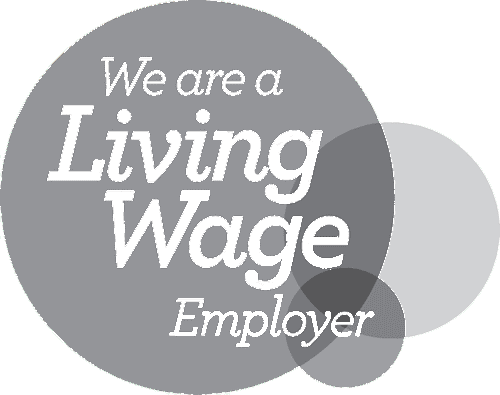Supply chain headaches and how to cure them
The last few weeks we’ve seen several headlines like “gas supplies under threat” and “meat could run out in under two weeks”, “petrol supplies threatened by lack of HGV drivers” etc… These are rightly concerning headlines and it’s all to do with the fragile supply chain operating across the UK and beyond.
Like it or not, we are interdependent as an economy on raw materials needed to produce goods, which in turn supplies businesses and households. Our supply chain is not just within the UK, but dependent upon supplies coming into the UK from other countries and are subject to a wide variety of conditions which can impact positively and negatively.
The issues we're facing today
The issues we are facing now are a combination of problems due to lack of resource, recovering economies around the world, resulting in increased demand, and of course seemingly ongoing issues caused by COVID-19.
Lots of supply chains, particularly in the food and retail sector, operate on what is known as ‘just in time’, whereby stocks are replenished as and when needed. It is a strategy in supply-chain management which ensures that retail and manufacturing can continue to service the needs of their customers but without the need to hold vast quantities of stock.
This has been the way of working in the retail sector for many years and most customers have continued to be oblivious and take for granted that supplies will be available when you next turn up at your local retailer. It works.
Recent issues have, however, caused some interruptions in this supply chain management strategy and, as such, one issue way down the line in a manufacturing process. Namely, unable to produce and/or deliver CO2.
This can have an impact on the supermarket shelves or the ability of catering providers to supply finished food products to kitchens and canteens. That’s a problem! Especially like me, if you look forward to a Sunday roast!
Notwithstanding, procurement professionals across the globe have taken center stage, particularly over the last year in managing these risks and seeking to work across supply chains to minimise the impact of supply chain woes. It’s just, like a lot of things, we don’t notice until things go wrong, and we can’t get hold of toilet roll or petrol!
Why keeping track of the supply chain is important
Procurement has evolved over the last two decades from a back-office function (where a poor individual would be lumbered with reams of purchase orders to ‘stamp’ and approve or reject, often placed in some dark, damp corner of a finance office), to a strategically critical and vital business function.
But mildly, if Procurement departments are not ahead of the risks in supply chain, it has the potential to shut down a business.
Not only that, but the increasing importance of ensuring supply chains are operating efficiently whilst at the same time reducing carbon emissions, creating employment, training opportunities and providing economic opportunities to small and medium businesses, ensures that procurement professionals have to be multi-tasking superheroes on a daily basis! We don’t wear a cape, (although I have thought about it) but there is a lot a pressure on those shoulders.
One recent shining example of procurement/supply chain is the worthy overall winners of the CIPS Excellence in Procurement Awards 2021. This was awarded to the UK Government Vaccine Taskforce, run by the Dept for Business, Energy and Industrial Strategy.
It was rightly recognised and lauded for successfully sourcing and deploying COVID-19 vaccines to three-fifths of the UK adult population and 550,000 people in Crown Dependencies and overseas territories over eight months.
It was challenged by material shortages, demand from other nations for supplies, timelines which were life-critical and manufacturing production and ramp-up issues to make the UK the first country to buy, authorise and deploy both the Pfizer and Oxford/AstraZeneca vaccines.
Wow! Again, it’s easy to ask the question: have we taken the vaccination program for granted?
The fact that vaccines have been successfully procured, supplied, delivered across the length and breadth of the UK, whilst requiring specialist refrigeration in some cases, at the right time, right place, right quality in the right quantity. This all being done in a very short time (in procurement terms) to me is outstanding and well worth a gong at least! I take my hat off to them!
What has all this got to do with the administrator or business manager on the ground?
Put simply, supply chain is vital to your school. Your school or trust operates successfully on the basis of supplies, be it catering supplies, stationery supplies, software systems, gas and electricity, supply staff, the list goes on… I don’t need to say that if your food/catering supplier does not turn up, that will cause not only major potential closure issues but reputational damage too.
What can be done?
Yes, some issues are international, or country–wide and there is little influence we can have unless we are ministers of state or major business leaders. However, there are some small steps that you can take to seek assurance:
- Understand which of your suppliers are strategically critical to your school? Ask yourself, regardless of how much you spend, if you did not receive those supplies within a couple of weeks, could it have the potential to close your school for a period of time? If that’s the case, and it’s a simple deliberation, then that supplier, that contract is what we (in the procurement profession) would describe as ‘strategically critical’. Could you easily replace them with another like for like supplier? Simply classifying your contracts/suppliers on this basis (we use what’s called the Kraljic Matrix – a useful tool for classifying the importance of contracts to a buyer) will be a huge step forward. Firstly, so you don’t waste energy on worrying about contracts that are not important.
- Check if you are in contract. Do you have a written contract? When was it last procured? Whose terms are you on? What do those terms say in the eventuality of failure to perform? Is the supplier reporting to you on a regular basis? Again, for strategically critical contracts this is essential
- It’s a simple one but talk to your supplier. Call them. Ask them are they experiencing any problems with supply deliveries at present. Do they foresee any issues in the near future? What is their plan? How are they dealing with it? Does it impact the service/contract? Is there anything YOU can do to help? A lack of visibility in your contract, not knowing when supplies will be delivered, not knowing what is being delivered, not knowing issues faced by a supplier can cause major worry and potential issues.
- Can you diversify your specification? If your supplier is reporting a lack of chicken, then put simply, like we would do at home, adjust your specification and menus. This will help alleviate pressure on the supply chain. Your supplier will ensure you continue to receive some supplies to keep operating.
- Think about lead-times. If your supplier is reporting potential issues, then speak with them about supply lead times. Do you need to get your orders in now, for example, so it allows suppliers to plan and prepare accordingly? In supply chain crises, the first casualty is usually the ‘ad-hoc’ requests and orders that come through. Suppliers, generally will not want to let-down committed and contracted customers. Hence, why it’s important to check you have a contract.
- If you don’t have a contract or assurance over supply chain, then this needs to form your most important procurement strategy for the coming quarter. The risks are too high not have a contract in place for strategically critical spends. Or if your contract is coming up for renewal, public procurement procedures only allow limited circumstances to ‘roll over’ and extend contracts without the need to re-tender them.
Yes, public procurement processes can be complicated and cumbersome, but they can also be highly effective at delivering a value for money competitive outcome with robust terms and protections for buyers. With the right, timely advice, we can help you get a procurement plan in place and advise you through a procurement process. That’s why we’re here.
Supply chain issues have always been with us and I suspect always will be, particularly in a globalised supply chain and a world competing for ever reducing resources. In most cases, those major supply chain issues are dealt with in the business world through competent and highly skilled procurement professionals. Notwithstanding, seek our help where you need to, even if it’s just a reassuring check on your contracts or help with a procurement plan, we are here for you.
If you are worried about your current supply chain, please get in touch.

Nathan Swinney, 2buy2’s head of category.
There’s not much he doesn’t know about procurement as he has been working with schools, churches and businesses for the past 19 years, providing advice on complex and collaborative procurements to help them achieve the best value for their spend. When he’s not talking procurement, you can find him either in the Garden or on a long walk in the countryside.





